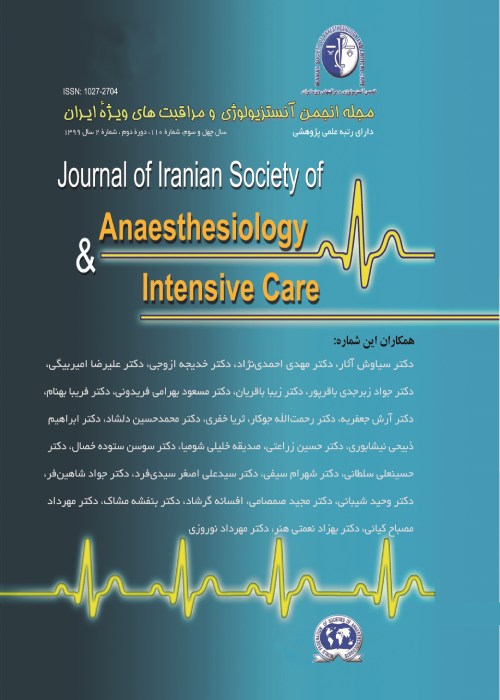Addressing the psychological problems experienced by brain death donor's family members: a qualitative-quantitative study
Author(s):
Abstract:
Introduction
Organ donation is a very difficult decision for families. Families of brain death patients are facing difficult and damaging stages of experiencing and understanding the brain death, and at the same time they also encounter the crisis of decision about organ donation. Quantitative methods and questionnaires have been used for identification of psychological problems in most studies, but perception of peoples mentality and experiences with common quantitative approach is not possible. Thus we decided to combine both quantitative and qualitative methods for deeper understanding of the psychological problems of donors family, to help them in making this difficult decision.Materials And Methods
This study was performed by combining investigations. Quantitative data and donors family view were evaluated through questionnaire and interviews, respectively.Results
Qualitative results were classified in three general concepts: unknowns-fear, doubt-dependency, and excellence. Each of these concepts was divided into smaller profile. Knowledge, concerns, unknowns, dealing with family and the therapist relationship were in the subgroup of unknowns; fear of regret, the chances of recovery, rejection of others', beliefs, and obsessive thoughts were in the subgroup of doubt and fear; and acceptance of reality, altruism, religious beliefs, growing up in difficult circumstances, interests and expectations, and emotional relationships were in the subgroup of development and dependence. In the quantitative results members of the families of 224 brain death patients were evaluated. The mean age of the participants in this study was 37/13 ± 60/35 years. The mean age of patients was 51/21 ± 82/44 years. Among all the demographic characteristics of individuals only the level of education was associated with psychological disorders (P> 0.05). Childrens anxiety was also significantly higher than the other family members (P Conclusion
Quantitative and qualitative results of the psychological problems of families of brain-dead organ donors showed that because of different experiences of families, lack of awareness, harmful levels of anxiety and depression, it is necessary to appropriately support families in this crisis situations. All of them are in need of medical team sympathy and in this way we must help them to find an awareness of their unknowns, thus better understanding of these conditions is provided. By strengthening the humanitarian morale of the people, the incidence of inappropriate thoughts and confounding factors in the adoption of this crisis would reduce.Keywords:
Language:
Persian
Published:
Iranian Journal Of Anaesthesiology and Critical Care, Volume:37 Issue: 2, 2015
Pages:
73 to 83
https://magiran.com/p1551843
دانلود و مطالعه متن این مقاله با یکی از روشهای زیر امکان پذیر است:
اشتراک شخصی
با عضویت و پرداخت آنلاین حق اشتراک یکساله به مبلغ 1,390,000ريال میتوانید 70 عنوان مطلب دانلود کنید!
اشتراک سازمانی
به کتابخانه دانشگاه یا محل کار خود پیشنهاد کنید تا اشتراک سازمانی این پایگاه را برای دسترسی نامحدود همه کاربران به متن مطالب تهیه نمایند!
توجه!
- حق عضویت دریافتی صرف حمایت از نشریات عضو و نگهداری، تکمیل و توسعه مگیران میشود.
- پرداخت حق اشتراک و دانلود مقالات اجازه بازنشر آن در سایر رسانههای چاپی و دیجیتال را به کاربر نمیدهد.
In order to view content subscription is required
Personal subscription
Subscribe magiran.com for 70 € euros via PayPal and download 70 articles during a year.
Organization subscription
Please contact us to subscribe your university or library for unlimited access!


